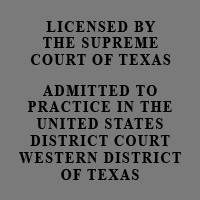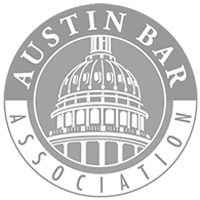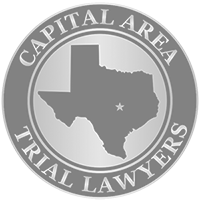Financial Professionals, Investors, and Corporate Insiders Can Anonymously Report Securities Exchange Act Violations Through A SEA Violation Reward Tip Lawyer and Earn Large Financial Rewards by Securities Exchange Act SEA Violation Protected Whistleblower Lawyer Jason Coomer
Securities Exchange Act SEC violation whistleblower lawyer, Jason S. Coomer, works with whistleblowers who want to collect a financial reward by anonymously exposing SEA violations through a lawyer. By working with a SEA violation whistleblower lawyer, whistleblowers are able to protect their identity by anonymously filing SEA violation reward tips and collect large financial rewards for properly exposing SEA violations. More specifically, whistleblowers can anonymously expose illegal conduct including accounting fraud, false information on Securities and Exchange Commission (SEC) filings, insider trading; stock manipulation schemes; inflation of stock prices; EFT fraud, and other securities fraud.
If you are aware of significant SEC violations, please feel free to contact SEC Violation Whistleblower Lawyer Jason Coomer via e-mail message or use our submission form about a potential Anonymous Whistleblower Reward Action.

Below are some helpful FAQs regarding Securities Exchange Act Violation Whistleblower Rewards and Anonymous SEA Reporting of SEA Violation Reward Tips:
Q1: What Types of Cases Does a Securities Exchange Act SEA Violation Whistleblower Lawyer Handle?A1: A Securities Exchange Act SEA Violation Whistleblower Lawyer represents anonymous SEA violation whistleblowers who want to anonymously expose violations of the Securities Exchange Act and earn large financial rewards. A Securities Exchange Act SEA Violation Protected Whistleblower Lawyer commonly works with professionals and other lawyers throughout the World who have original information of bribery schemes, corrupt practices, accounting fraud, or other illegal conduct.
Q2: Can SEA Violation Whistleblowers Anonymously Expose Securities Exchange Act Violations to SEC and Collect a Reward?A2: Yes, the Securities Exchange Commission SEC allows Securities Exchange Act SEA violation whistleblowers to anonymously file SEA violation reward tips through a lawyer. The ability to file SEA violation tips anonymously protects the whistleblower's identity and sometimes their career.
Q3: How Much Can a SEA Violation Whistleblower Receive for Anonymously Exposing Signficant Violations of the Securities Exchange Act?A3: The Securities Exchange Commission (SEC) offer large financial rewards from 10% to 30% of the money collected by the agency as a result of the tip. Past SEC rewards have been up to $30 million dollars. However, larger rewards may apply if larger fines are obtained by the SEC.
Q4: What Types of Securities Exchange Act Violations Qualify For Anonymously Financial Rewards?A4: Violations of the Securities Exchange Act which result in the SEC obtaining a monetary reward of over $1 million can qualify for an anonymous whistleblower financial reward. However, the reported violation must be based on original information and be as a result of the anonymous tip provided. Further, these rewards are first to file and the anonymous whistleblower must follow the filing rules as well as must file the tip voluntarily and have clean hands regarding the violation.
Several Types of Securities Exchange Act Violations Can Be The Bases for Anonymous Whistleblower Reward Claims
The SEC offers large financial rewards to persons who properly expose significant Securities Exchange Act SEA violations through the SEC Whistleblower Bounty Programs. Further, this information can be reported anonymously through a lawyer protecting the anonymous whistleblower's identity. Several types of SEA violations can be the basis for SEC Anonymous Whistleblower Rewards including:
-
False or misleading information on a company's financial statement;
-
False or misleading information on Securities and Exchange Commission (SEC) filings;
-
Lying to corporate auditors;
-
Insider trading;
-
Stock manipulation schemes;
-
Embezzlement by stockbrokers;
-
Manipulation of a security’s price or volume;
-
Fraudulent or unregistered offer or sale of securities, including Ponzi schemes, high yield investment programs or other investment programs;
-
Brokerage Account and Retirement Account Fraud;
-
False or misleading statements about a company;
-
Failure to file required reports with the SEC;
-
Abusive naked short selling;
-
Theft or misappropriation of funds or securities;
-
Fraudulent conduct or other problems associated with municipal securities transactions or public pension plans; and
-
Bribery of foreign officials
SEA Violation Whistleblowers Should Expose Market Manipulations Schemes and Illegal Sales of Stocks
The SEC targets market manipulation schemes including illegal stock sales. These schemes can include international investors involved in market manipulation schemes as well as pump and dump schemes. The SEC prohibits market manipulation and recently imposed a $35 million fine on investors who secretly dumped large quantities of microcap stock. This SEC action illustrates the agency’s determination to detect fraud and protect investors. More specifically, the SEC wants to make sure more exotic and complicated ETFs are not used to manipulate the markets.
The SEC Also Encourages SEA Whistleblower to Expose Illegal Pump and Dump Schemes
The SEC also protects investors from illegal pump and dump market manipulation schemes. Further, the SEC prohibits the sale of millions of shares while a stock’s price is being artificially inflated and dumped into the market. This prohibition applies to different types of stocks including unregistered stocks and microcap stocks. Further, the SEC works to root out overseas and domestic players who use microcap markets to take advantage of U.S. investors. Evasion of Securities Registration Requirements Can Also Be The Basis of Bounty Actions The SEC also regulates securities registration requirements. Further, the SEC targets those who violate the antifraud and registration provisions of the federal securities laws and who act as unregistered broker-dealers. They also target investors engaged in other manipulative conduct. This conduct includes disguising the true sellers of securities and defrauding investors to generate illicit profits.
The SEC Regulates Private Companies Who Violate the Securities Exchange Act and Defraud Investors
SEC representatives clearly state that “being a private company comes with serious obligations to investors and the markets.” Further, the agency monitors private companies in respect to their reporting to actual and potential investors. The SEC also enforces securities and investment fraud schemes committed by individuals and private companies. These enforcement actions fine and punish private companies for disclosure violations, fraud, and other illegal conduct.
The SEC Also Regulates Private Investment Advisers and Private Equity Funds That Violate the Securities Exchange Act
The Dodd-Frank Act requires all private equity firms with more than $150 million in assets to register with the SEC in the category of “Investment Advisers.” More specifically, the SEC regulates investment advisers and private equity funds through the Advisers Act. This Act requires all non-exempt private equity fund investment advisers to register with the SEC. Further, the SEC requires these investment advisers to comply with securities laws and disclosure requirements. More specifically, the SEC requires these private equity funds to report information to the SEC. More specifically, depending on the investment adviser and equity fund, the SEC requires specific disclosures. Failure to make these disclosure or making false disclosures can be the basis of enforcement and bounty actions.
The SEC Targets Individuals and Entities Globally Who Violate the Securities Exchange Act
The SEC pursues individuals and entities, whether located domestically or abroad, who undertake complex schemes to violate the Securities Exchange Act. Further, the SEC seeks SEA violation whistleblowers with original knowledge of illegal conduct that negatively impacts financial markets and defrauds investors.
Through whistleblower protection legislation the federal government offers financial incentives to whistleblowers who anonymously expose significant SEA violations. For a SEA violation to be significant enough for a whistleblower blower to receive an award, the violations have to lead to monetary sanctions of over one million dollars ($1,000,000.00). If the monetary sanction is over one million dollars, the SEC can award the whistleblower up to 30% of the money collected. In other words, in a case where $1 Billion in monetary sanctions is obtained, the whistleblower can receive an award of up to three hundred million dollars ($300,000,000.00). A whistleblower award of $30 million has already been paid to an anonymous whistleblower through the Bounty Action Program and several other large rewards are expected in the future.
SEC Fines Commonly Include Fines for Financial Disgorgement
A financial disgorgement is a repayment of ill-gotten gains that is imposed on wrong-doers by the courts. Thus, funds that were received through illegal or unethical business transactions are disgorged, or paid back, with interest to those affected by the action. Disgorgement is a remedial civil action, rather than a punitive civil action. As applied to the SEC violations, individuals or companies that violate SEC regulations are typically required to pay both civil money penalties and disgorgement. Civil money penalties are punitive, while disgorgement is about paying back profits made from those actions that violated the SEC's regulations. In some instances, disgorgement payments are not only demanded of those who violate securities regulations, but can often also be collected from anyone profiting from illegal or unethical activities.
Some Specialized Financial Professionals Have Specialized Knowledge From Their Independent Analysis of Financial Markets That Will Qualify As Original Information Under SEC Bounty Action Rules And Allow The Professional To Claim Financial Rewards For Exposing Investment Fraud Through Their Specialized Knowledge (Expanded Definition of Original Information to Include Independent Analysis)
The definition of "original information" in the SEC Whistleblower Reward Program, has been expanded from prior whistleblower reward laws to include "independent analysis". This new expanded definition includes a whistleblower’s independent analysis or own examination and evaluation of publicly available information, if and only if that whistleblower's examination, evaluation, and analysis is determined by the SEC to provide vital assistance to the SEC staff in understanding and identifying complex fraud schemes and violations of securities law.
This expanded definition of "original information" does provide an opportunity for financial analysts, money managers, and high end advanced whistleblower to use their expertise and own independent analysis to blow the whistle on large fraud schemes and potentially make large recoveries, however, it is important to realize that these forms of whistleblower awards are new and it is not fully understood how the SEC will apply financial awards based on independent analysis. As such, for the protection of high end financial analyst whistleblowers, money manager whistleblowers, and investors, it may be best to report the fraud through a SEC Whistleblower Reward Program Lawyer that can protect the identity of the whistleblower until it can be determined what type of an award may be offered.
SEA Violation Protected Whistleblower Lawyer Confidentially Works with Financial Professionals to Anonymously Expose Significant Financial Fraud
As a SEC Violation Protected Whistleblower Lawyer, Jason S. Coomer commonly works brokers, accountants, financial analysts, corporate insiders, and other financial professionas. He also commonly works with other financial fraud and securities fraud whistleblower lawyers to confidentially review SEC and CFTC whistleblower reward cases and anonymously report significant Securities Exchange Act and Commodity Futures Trading Commission violations. He also works on Medicare Fraud Whistleblower Lawsuits , Defense Contractor Fraud Whistleblower Lawsuits, Stimulus Fraud Whistleblower Lawsuits, Government Contractor Fraud Whistleblower Lawsuits, and other government fraud whistleblower lawsuits.
If you are the original source with special knowledge of fraud and are interested in learning more about a whistleblower lawsuit, please feel free to contact SEC Violation Whistleblower Reward Lawyer Jason Coomer via e-mail message.
Feel Free to Contact Us with any Questions
Associations




